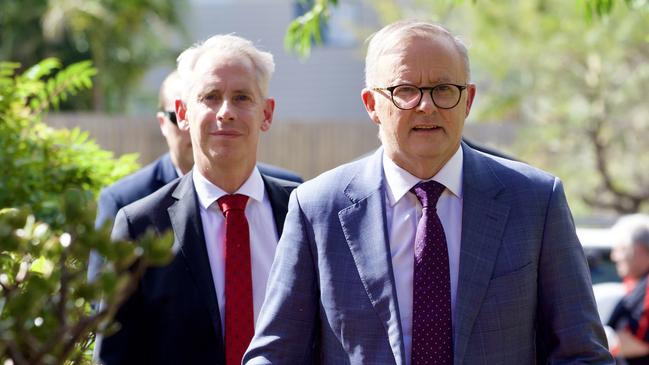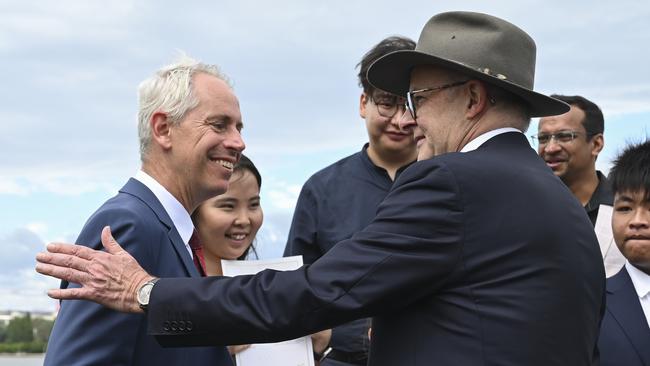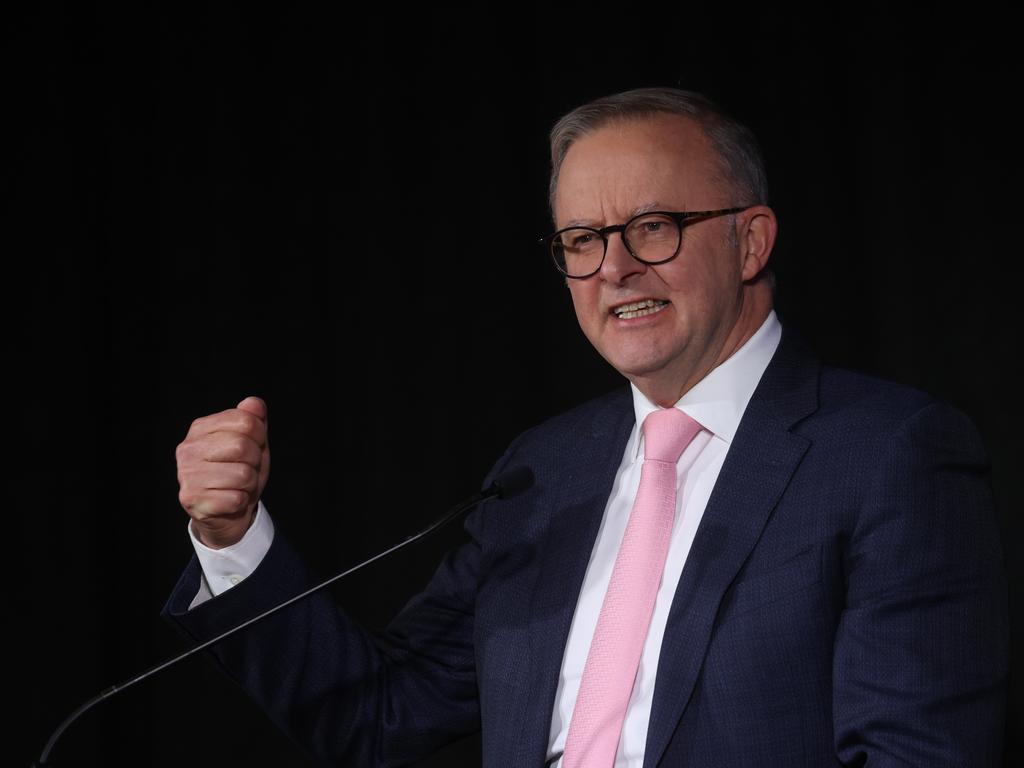
But what’s worse for Anthony Albanese and his government is that the minister’s failings have drawn the air out of the first parliamentary sitting day of the autumn session and buried Labor’s attempts to regain direction and promote the giveaways and goodies of the May 14 budget.
Single-handedly Giles ensures the political focus remains on public concerns about the crimes of released immigration detainees and the wider administration of a record immigration program.
The Prime Minister insists on defending the besieged minister and makes the political fallout even worse when he is eventually forced to exercise his authority and do something – anything – about the disaster instead of adopting the absurd argument that all these “wrong” decisions are being made by an independent tribunal acting within the directions of the minister.
Giles told parliament on Tuesday his department made serious decisions he didn’t know about, that the Administrative Appeal Tribunal was misinterpreting his own directive and that, after another round of embarrassing decisions and releases, he was reconsidering cancelling visas again.
This is a policy, political and personnel disaster that is severely damaging Labor’s attempts to restore order and direction in the autumn parliamentary sittings after a period of dangerous drift.
The post-budget autumn session of parliament going into an election year is a vital political pivot for any government with the need to build momentum on the back of a good budget or neutralise the effect of a badly received one.
It has also proved fatal to the electoral prospects or for the leadership of the last four prime ministers removed by their partyrooms, including Albanese’s two Labor predecessors.
Unfortunately for Albanese, this autumnal sitting has more mists of political fog and opaque leadership than the promise of mellow fruitfulness in the months ahead.
This two-week sitting taking parliament officially into winter will not decide the next election – which is to be held between mid-August this year and mid-May next year – but it will decide the crucial political tone, party confidence and electoral momentum going into the long winter break and the resumption of parliament in the spring.
Instead of building on a good reaction to the May 14 budget, entrenching the economic plan to cut inflation, playing up the $300 energy rebate, spruiking the July 1 tax cuts and the billions in spending for housing and select industrial projects, Albanese faces a tepid voter reaction to giveaways, downright criticism from economists over inflation and a huge risk as to whether interest rates are cut this year.

What’s more, like his predecessors who bumbled a budget and brought down a crushing weight of unpopular decisions, Albanese is losing what control he had of the political debate and the social narrative.
Jim Chalmers’ grand plan for change to the economy, increasingly opposed by business and industry as a job lot with industrial relations changes and government-funded wage rises, is being lost in the mists about social division, housing shortages, rising prices (separate to inflation), immigration and crime.
The Treasurer’s plan for government investment in industry in the Future Made in Australia strategy has also faced a direct challenge from Industry Minister Ed Husic, who publicly called for a cut to the corporate tax rate or a lift in investment allowances.
This is a serious policy difference and can’t merely be waved away as a misconstrued comment or throwaway line.
There are those in cabinet who are now questioning the policy direction.
Chalmers faced his first question – ever – from Angus Taylor, his opposite number, about Husic’s corporate tax cut call and had to politely slap down the minister placed at the very end of the frontbench.
But for Albanese the problems of the autumn session are broader and more dangerous even than a policy fight over corporate tax because of Giles’ indefensible actions and Labor’s ambivalence on anti-Semitism and the Gaza conflict.
While the Greens intend to press Labor over a vote to recognise Palestine while the Coalition seeks an inquiry into anti-Semitism, Albanese muddles in the middle.
The PM also has to deal with the dawning reality that despite carbon emissions targets, already embroiled in local controversies over arrogant handling of offshore wind farms and new power lines, and the reality that even if Wednesday’s CPI figure points to a further easing of inflation, people are still facing rising prices for food, energy and petrol.
So far, Albanese’s handling of the issues outside parliamentary sittings has been little short of chaotic, incomprehensible and illogical. On the one hand he flags he might have a cabinet shuffle before the election and in the next breath defends Giles vehemently.
Autumn sittings, budgets and the impact on upcoming elections piles on even more pressure for Albanese, who must take control and lead.
In 2010 Kevin Rudd was kicked out in June after the budget and a war with the mining industry; Julia Gillard suffered the same fate in a June 2013 sitting after introducing unpopular carbon emission laws; Tony Abbott was removed in his first term in 2015 after a poorly received budget was used as an excuse for a series of leadership challenges, and Malcolm Turnbull was removed as prime minister in the winter sitting of 2018 after going to the polls straight after a poorly received budget in 2016.
All these prime ministers were slipping as leaders and lost the backing of the public and their colleagues after failing to impose authority and control the political and economic narrative.
Hiding in the mists of autumn sittings doesn’t cut the mustard.








Andrew Giles’ abysmal performance as Immigration Minister – the release of dangerous criminals into the community; his inability to keep the oft-repeated claim of putting “community safety first”; his admitted ignorance of key departmental decisions; continued blame shifting to an “independent tribunal”; a refusal to change his own negligent directions; and a refusal to take any responsibility – makes the case for his resignation or dismissal.